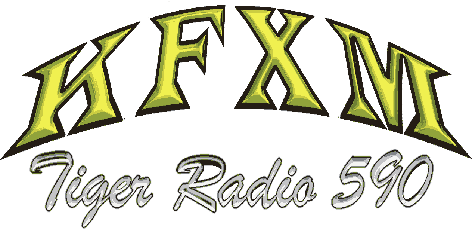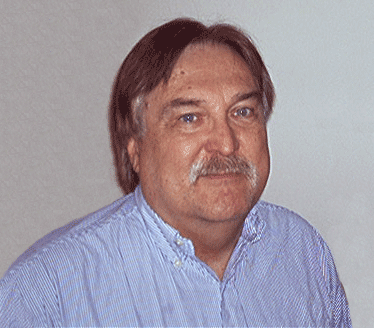Staff

Bio of Greg Mitchell

Greg Mitchell (George Junak) spent parts of 1976 and 1976, working weekends and 6pm to midnight. Prior to that, Greg was at KDES in Palm Springs – a station that was a launching pad for a lot of the KFXM-Squad.
Greg’s education was at Pasadena City College, San Diego State University and Cal State Northridge.
When he left KFXM, Greg with to KSOM in Ontario, then KNDE in Sacramento, KERN in Bakersfield, K/men, and 91X in San Diego.
He is currently the owner of the California Aircheck website.
“Bob West and I both did weekends at KDES/Palm Springs in 1974; Bob left and went to KFXM. One Sunday on my way home from KDES to the San Fernando Valley in Los Angeles where I was going to Cal State Northridge during the week, I heard Bob on the air at KFXM and pulled off I-10 to use a pay phone to call him and say hi. Bob told me that KFXM PD Ted Brown was really in need of a weekend jock so I sent Ted a tape and was hired on the phone before the next weekend.
“That first weekend I worked midnight-3AM on Sunday morning, drove to Palm Springs to do 6AM-3PM (6-10AM was running public service tapes; 10-3 on air) then returned to KFXM to do 4-7PM. It didn’t quite work out as it took longer than 60 minutes to drive from Palm Springs to Colton and I didn’t get there until about 3:10. After that weekend, Ted Brown changed my 2nd Sunday shift to 7-midnight and I continued to work three airshifts each Sunday on two different stations. KDES paid $1.65 an hour (minimum wage); KFXM was a whopping $5 an hour for part-timers.
“Getting fired the second time (or maybe it was the third) from KFXM was the only time I had a new job before I was out of the building. I was hanging out with the ladies in the traffic department while my final check was being cut by the bookkeeper. Before I was out the door, Bob West called from KSOM to offer me 6-10PM. He had heard I was getting canned that day and had cut the evening & overnight shifts to 4 hours to make room for me. I gave him an immediate ‘yes’ and started the next night at KSOM.
“Unfortunately, KSOM threw all of its power south from Ontario into mostly unpopulated areas so it had no chance of being a success; during the day it covered Ontario, parts of Riverside and Corona; at night pretty much just Ontario and Corona. By years end they had decided to flip it to Spanish after softening it to a Hot AC from Top 40.
“Howard Tullis seemed to think that those KFXM DJs would run up his phone bill and use up all his copy paper. When the office closed each evening, the phones all over the building would be turned off. The only outgoing line was in the KDUO studio. While I did not run up Howard’s bill, I quickly figured out how to dial out on those old rotary phones (the hotline phone in the studio would only receive calls – I think the rotary dial was taken off the phone) – you could tap out the number you wanted to call (kind of like a telegraph) using the plastic buttons on the top that the hand-piece sat on. Worked like a charm in a pinch.
“And the copy machine? It was turned off and locked each night but a letter opener could be slid down to pop the on-off switch buried inside the copier, should a late night copy ever be needed. Sorry Howard…
“If someone like Ted Brown needed to call Howard Tullis at his Los Angeles office, he had a similar system to his calls to GM Bob Bunnell. Ted would call person-to-person for Archie Tullis and Howard would refuse the call, usually with some story for the operator like ‘Archie’s down at the pool hall; he’ll be back in an hour or so’ and would then call Ted back at the station”.